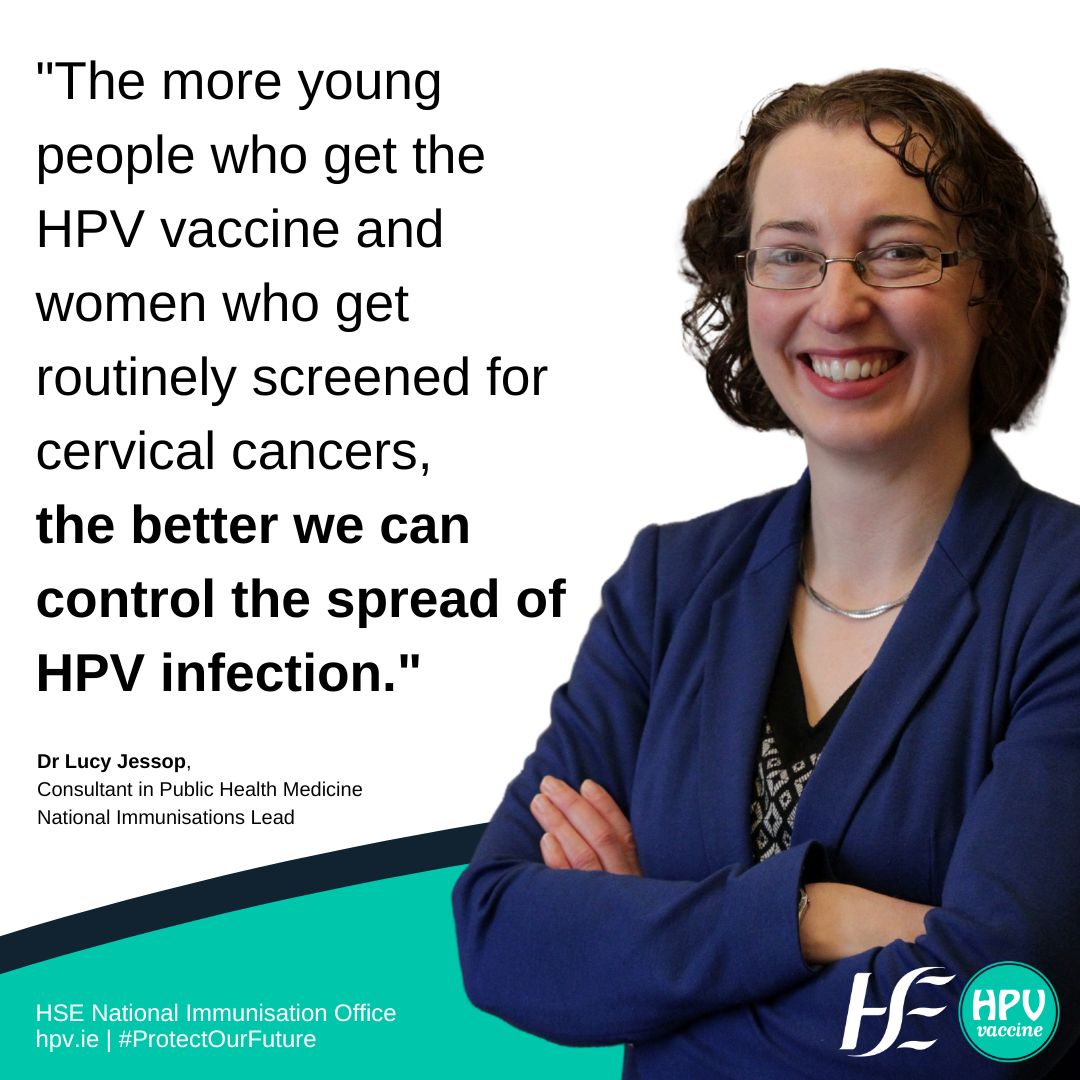International HPV Awareness Day: Protect Your Future, Get the HPV Vaccine.
This Saturday 4th March 2023 marks International HPV Awareness Day.
We spoke to our Director Dr Lucy Jessop, Consultant in Public Health Medicine, about what HPV is and how the HPV vaccine can save lives.
First of all, what is HPV?
HPV stands for ‘human papillomavirus’, which is group of over 100 viruses.
HPV is very common. In fact, most people will be infected with some form of HPV during their life – most commonly when people are in their late teens or early 20s.
How serious is HPV infection?
For most HPV infections, people recover without treatment. However, in some people, HPV infection can lead to serious problems, for example, cancer or genital warts.
What cancer does HPV cause?
HPV causes 1 in 20 cancers worldwide.
Almost all cervical cancers (99%) are caused by high-risk types of HPV infection.
The HPV virus also causes
- 5 out of 10 vulval cancers
- 7 out of 10 vaginal cancers
- 9 out of 10 HPV-related anal cancers
- 9 out of 10 incidences of genital warts
HPV also causes cancers of the mouth, anus and penis.
How effective is the HPV vaccine?
The good news is that the HPV vaccine is very effective in protecting you against HPV infection, cervical cancer and other cancers caused by HPV, and genital warts.
The HPV vaccine is most effective when you get it before you come into contact with the HPV virus.
In Ireland, the HPV vaccine that young people get protects them against 9 out of 10 cervical cancers.
Most young people under 25 now only need to get one dose of the HPV vaccine to be protected. People with a weak immune system may need three doses of the HPV vaccine so they can be fully protected.
Who can get the HPV vaccine?
In Ireland, both young girls and boys get the HPV vaccine as part of the school vaccination programme. To date, over 550,000 students in Ireland are fully vaccinated against HPV. Read more about the HPV vaccine programme in schools.
Students (both boys and girls) currently in 1st year can get the HPV vaccine through the school vaccination programme. We know from a recent report by the Health Protection Surveillance Centre (HPSC) that 8 in 10 students have got the HPV vaccine. Read HPSC's HPV vaccine uptake statistics.
How can young people get the HPV vaccine?
If you are under 16 and want to get the HPV vaccine, you can get the vaccine through your school or a HSE clinic.
You can now book a HPV vaccine catch-up appointment if you are a:
- female age 16 to 24 years
- male age 16 or older who started 1st year of secondary school, homeschool or a special school between 2019 and 2021
Why should you get the HPV vaccine?
We know that the HPV vaccine is very safe, effective way to protect young people from HPV infection and cancers HPV can cause.
The vaccine saves lives. It protects against 9 out of 10 cervical cancers.
The more young people who get the HPV vaccine and women who get routinely screened for cervical cancers, the better we can control the spread of HPV infection.
 |
On International HPV Awareness Day 2023 we asked Dr Lucy Jessop, Consultant in Public Health Medicine and National Immunisations Lead at NIO, about HPV, why HPV vaccination is so important and how the HPV vaccine can save lives. |
“The WHO has set a target of 90% of girls to be fully vaccinated with the HPV vaccine by the age of 15 by 2030. We are working with the WHO to achieve this common goal and eliminate cervical cancer.
On this International HPV Awareness Daywe continue to say #ThankYouLaura and I would encourage parents and students to visit hpv.ie for more information about HPV vaccine and to find out if they are eligible for the vaccine through the Laura Brennan HPV Vaccination Catch-up Programme.
The more young people who get the HPV vaccine and women who get routinely screened for cervical cancers, the better we can control the spread of HPV infection. Protect your future - get the HPV vaccine."
This page was updated on 3 March 2023